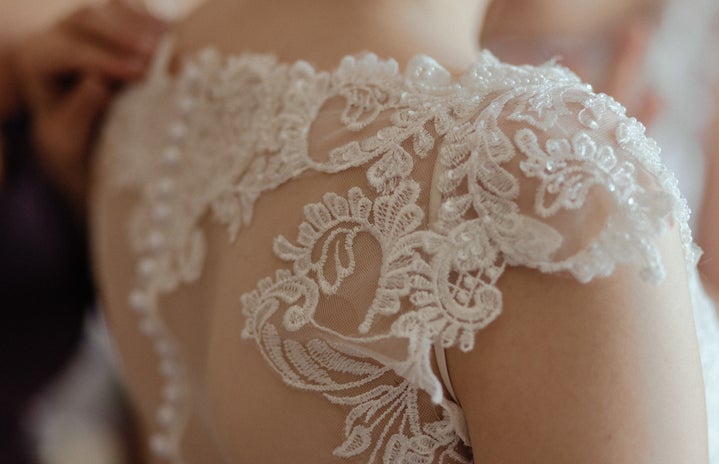I am no expert on film, so I do not aim for this article to exist as a critique or review of the 2019 adaptation of Little Women. Watching Little Women felt like watching a story of a life I was living and a life I had lived and the lives lived by everyone I love. I found each of these storylines in every scene, character, and emotion felt. We follow the plotline of Little Women through the story arcs of several protagonists, including the ambitious and courageous Jo March. Jo is a writer beyond all else, and has a fervor for creation that seeps into the souls of those who watch the film. We watch Jo grow up and struggle to not see ourselves in her. As someone with very similar identities to her, including gender and race, I easily found myself in Jo.
Without giving too much away about the storyline, Jo’s dreams of writing and being read are complicated throughout her journey. She is continuously having to return to places and people that have impacted her life. These encounters with the well-known are not always chosen, and they are always emotionally substantial. As her experiences with these lasting characters, conversations and moments become more nuanced and layered. Everything in her life is building upon itself, and everything in her life is impacting her choices and actions. Jo’s future is an inference of her past.
I floated from the High Pointe Theater Backlot Stage bodily unable to communicate everything I was thinking and feeling about the film. Just as Gerwig’s Lady Bird enthralled and warmed audiences with her dialogue of home, femininity and parenthood, so does Little Women. We are getting used to talking about our “first” everything and what each of those moments meant to us. Watching a Gerwig film reminds us that the past is everywhere. This notion sticks with us long after we engage with her work.
I’m simultaneously diving headfirst into obtaining an undergraduate degree and preparing to evacuate my undergraduate experience. On different days, aspects of one or the other are more salient. Sometimes school is a playground and sometimes it’s a swamp. When it’s sunny, I refresh and refresh and refresh my email and pray to get responses on applications sent to opportunities far and wide. When it’s partly cloudy, I am synthesizing feminist theory and writing for my capstone, enthralled and in love with an opus to come. When the stars are out, I yearn to be asleep, hastily studying from my biology textbook. Every time I look out the window, I’m lost in a love novel of where I will be a year from now. School is a burden and a dreamscape, providing spaces for pain and change and flux. I have four years of memories walking up and down this campus– I am surrounded by where I have been over and over again.
I am surrounded by all the good and all the bad and all the trauma that has happened here. Every person I’ve had a falling out with is here. All failed crushes and ignorant leaders. Everyone who has ever hurt me and everyone I’ve ever hurt is somewhere. In a sense, the stuff that is familiar is also rooted with pain. This relationship shifts depending on the spaces inhabited. Greta Gerwig paints a picture invested with layers in Little Women.
In Little Women, the protagonists are consistently being pushed and pulled away from their passions and each other. As women, it is incredibly difficult for people to take their passions seriously. With not enough money to economically sustain all family members, it is inherent that the March daughters inherit money from a husband. The daughters are existing in a time in which their choices are insurmountably nuanced- failure to perform as feminine cis-women and acqrue a wealthy husband could send their family into poverty. Keep in mind, the Marches are a white family in a generally wealthy town. They have the skills and resources to get into extensively wealthy spaces. The March daughters are constantly trying to pass as wealthy in dances and public outings. Their relationships with potential husbands become so much more than love and devotion–marriage is not a choice. With this knowledge, each of their moves and changes with each other and with each thing that shifts.
As relationships lengthen and morph they entangle. Throughout our lives as young adults, relationships with rooms and people become more complex. For the March sisters and for us, going to a place called “home” adds new memories every time. Each memory that gets added comes with a weight of its own. All of our decisions impact all consequent decisions.
Like the characters in Little Women, we care about things and people for a million reasons at once. No feeling or decision is enacted without countless layers of history. The butterfly effect, in which every action is felt in every experience onward, is found here. What series of events led to being in this space? We have the beautiful opportunity to see our past in every moment, because we inhabit both of them.
As we move forward into spaces and journeys familiar and unfamiliar, it’s important to hold dear the good things that bring us to where we are. It’s equally as important to heal from trauma and to work with ourselves, our close relationships and mental health professionals about spaces and memories that do not suit us as we move forward. We deserve to leave things.
I find reminders of things that have passed every day. A picture will pop up from eons ago or an idea that used to enthral my life will resurface or I will talk to a friend with the compassion another had communicated to me with. Even small decisions and small nuggets of our lives have impact later on. We don’t know what will impact us where we are going until it does.
The complexity of our lives will build no matter how we feel about it. Though we can distance ourselves from spaces that are traumatic, all outside of that realm will continue to change and shift. The past doesn’t have to be all good or all bad. It’s just complicated, and we’ll find it tomorrow.



